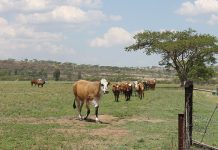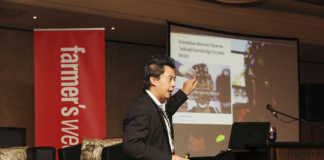South Africa’s economy has stagnated, and by the time you read this, Standard and Poor’s may well have downgraded the country’s credit rating to junk status, setting the scene for our economy to slip into recession.
How do we set the economy on a different course? Dr Martyn Davies, managing director of emerging markets and Africa at Deloitte, suggests that we can start by being a less angry and divided nation.
Speaking at a state of the nation breakfast hosted by Deloitte in Johannesburg, Davies said that South Africa would never be internationally competitive “if we are so angry with each other, internally”.
He said that research showed that three things destroyed wealth in a country – conflict, ideology, and corruption.
“Having one of these present is bad, having two is really bad, and if you have all three – it’s all over.”
For Davies, the real question for South Africa should not be how it can temporarily avoid a ratings downgrade – which, according to him, is currently a 50-50 chance – but how long-term economic stability can be established. The answer, he suggested, may lie in revising the fast rate of deindustrialisation.
According to Davies, South Africans also need to see the economic situation in perspective. Things could be much worse, he said, and singled out Venezuela as a cautionary tale about the likely outcome of populism.
Venezuela’s current average wage in dollar terms is US$10 (R156/ month). When the country’s gross domestic product was at its peak, the average wage was US$12 000/year (about R187 000).
“Yet, when Malema went to visit Venezuela in 2010, he praised Venezuelan president, Hugo Chavez, for ushering in an era where resources like oil have returned to the people as a whole,” Davies said.
When we have to start looking to a failing state to feel better about the situation in our own country, I become really worried.
Speaking at the same event, political commentator Justice Malala said that besides dismal economic growth, South Africa’s toxic politics were also a problem for the country. But the good news, according to him, was that civil society was waking up.
“The reality of protest has arrived and after what happened on 9 December last year [the finance minister debacle] the impact of political events on our economy have become [clearly] evident,” he said.
Perhaps Davies is wrong. Perhaps our problem is not that we are too angry, but we are not angry enough yet. South Africans should become so irate at the way our country is being run that every citizen is stirred out of complacency into action.
If politicians won’t solve South Africa’s problems, civil society will have to do it – if only the politicians would get out of the way.













